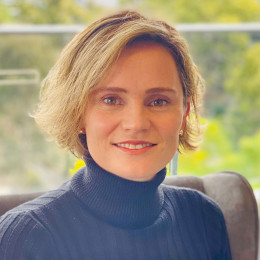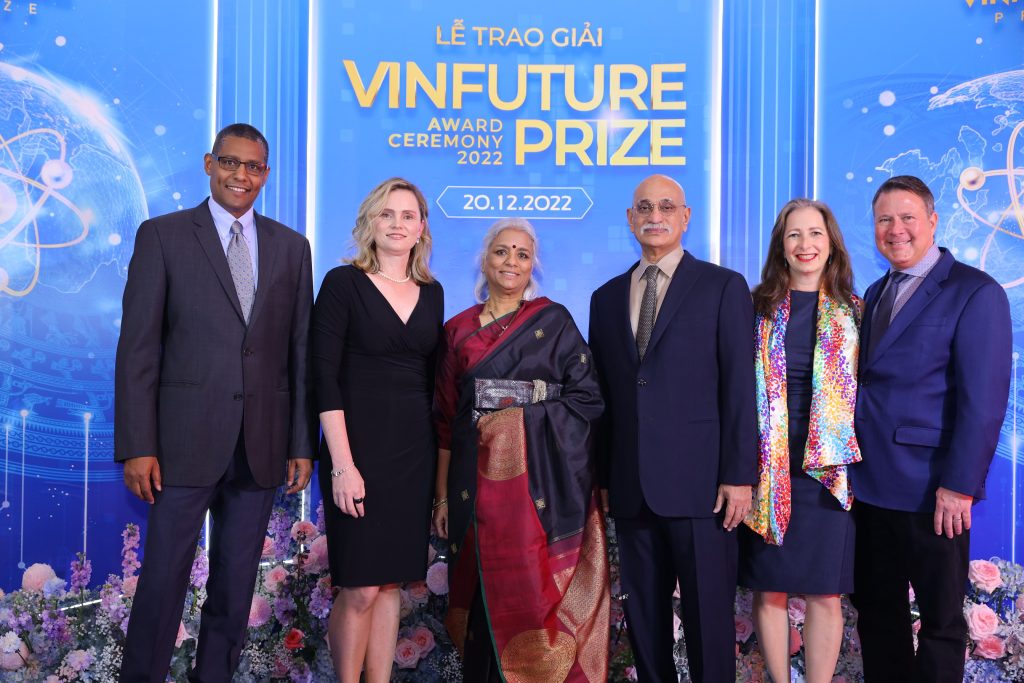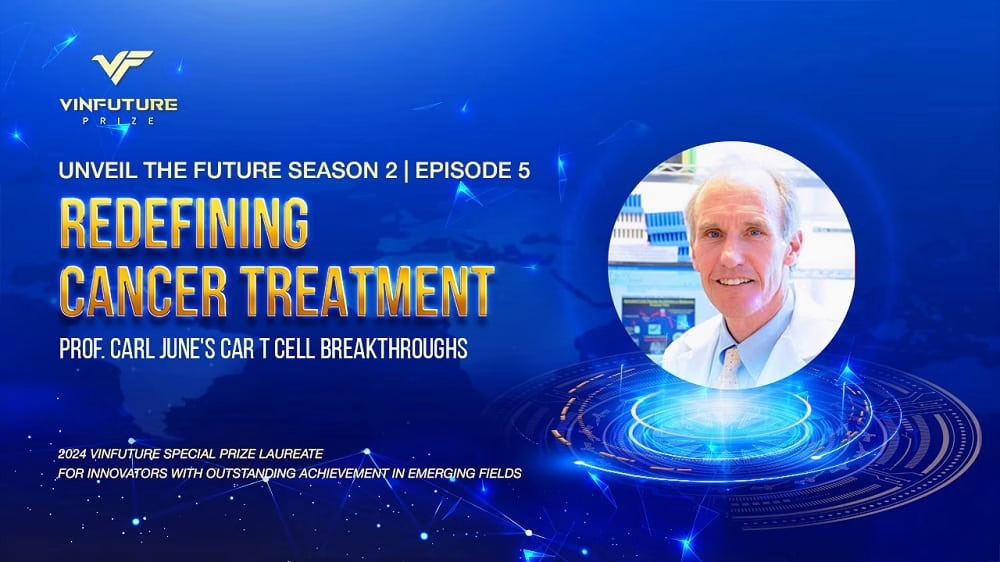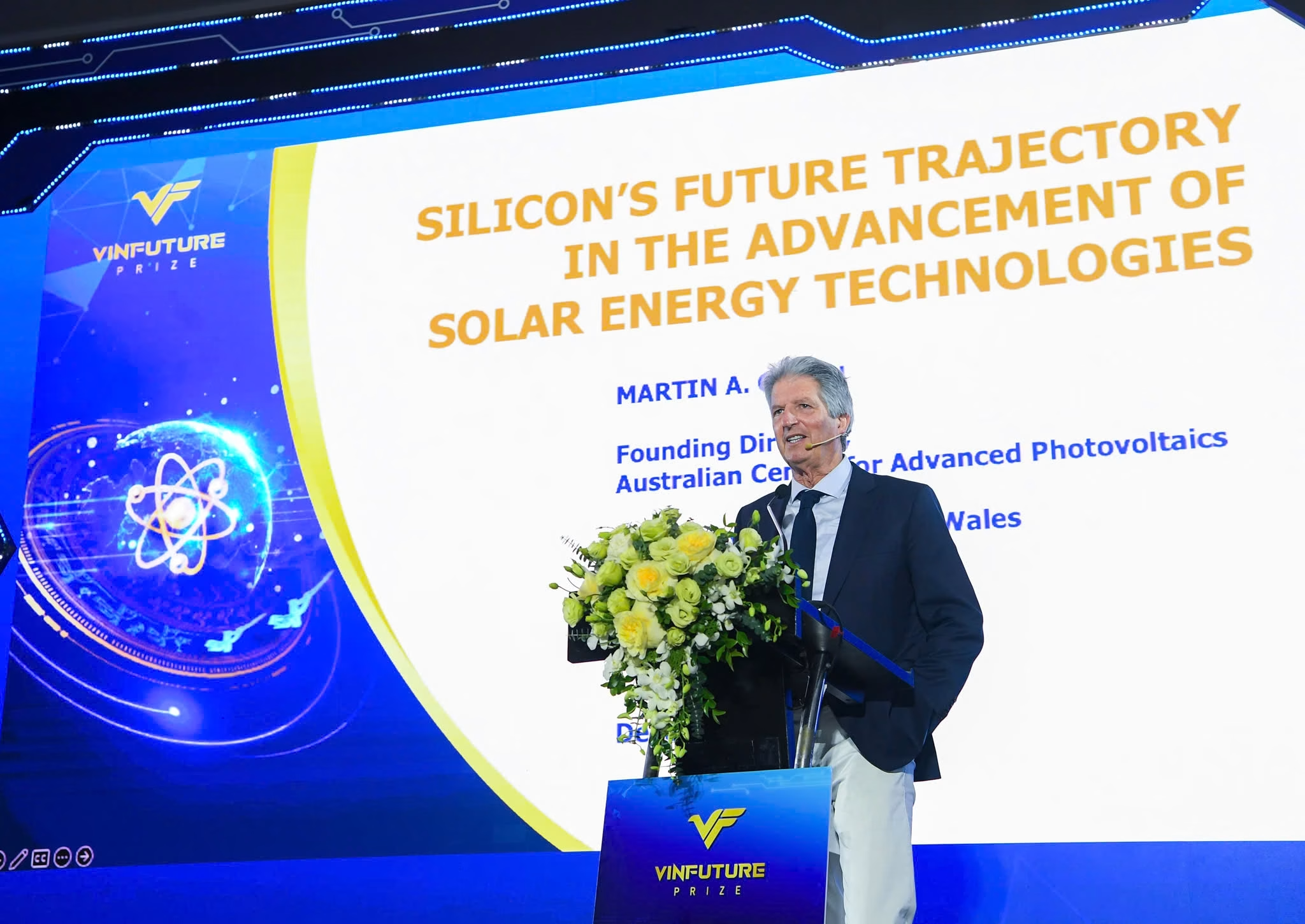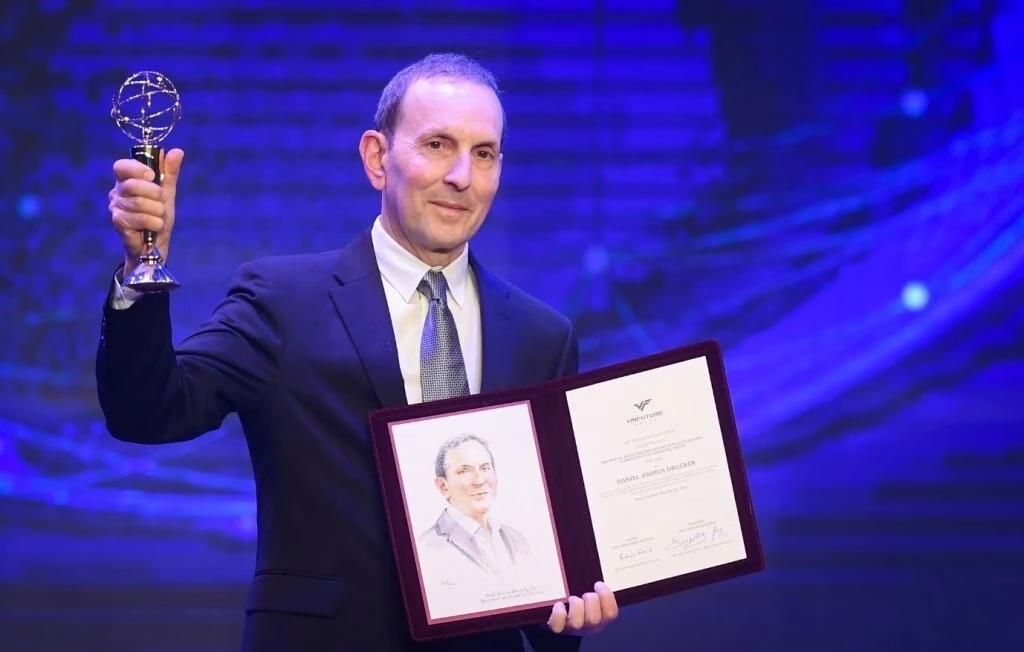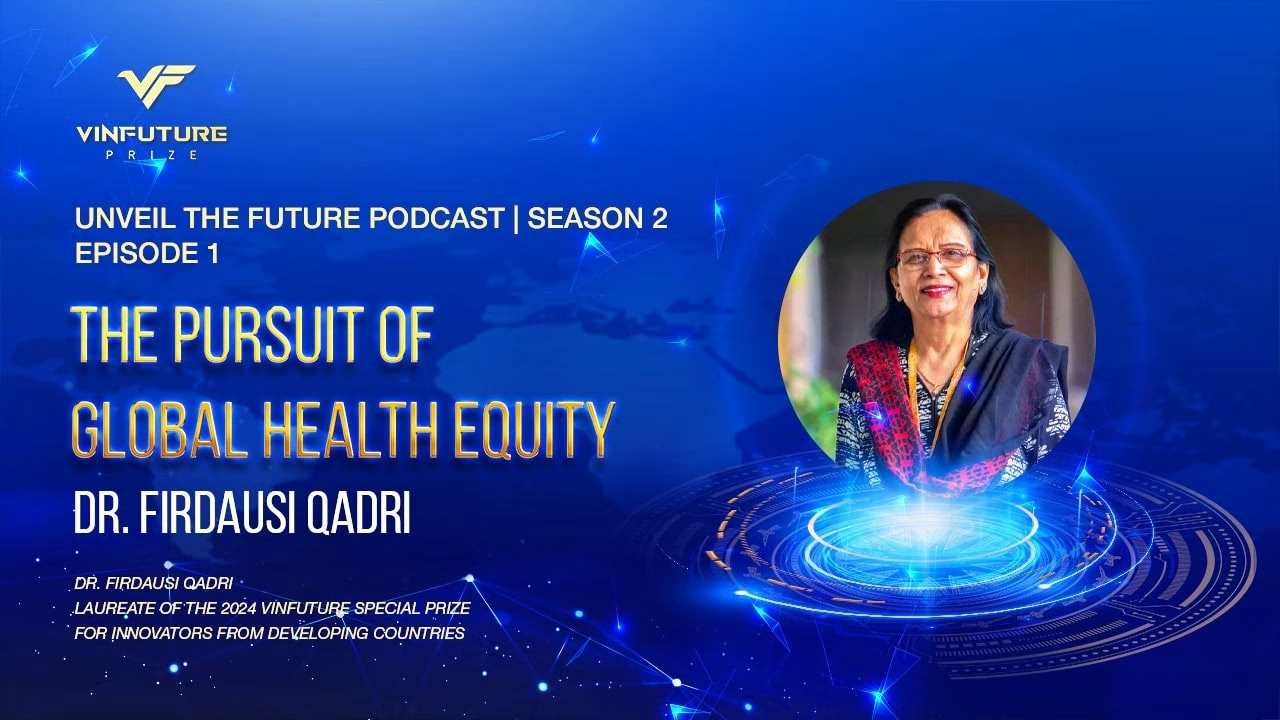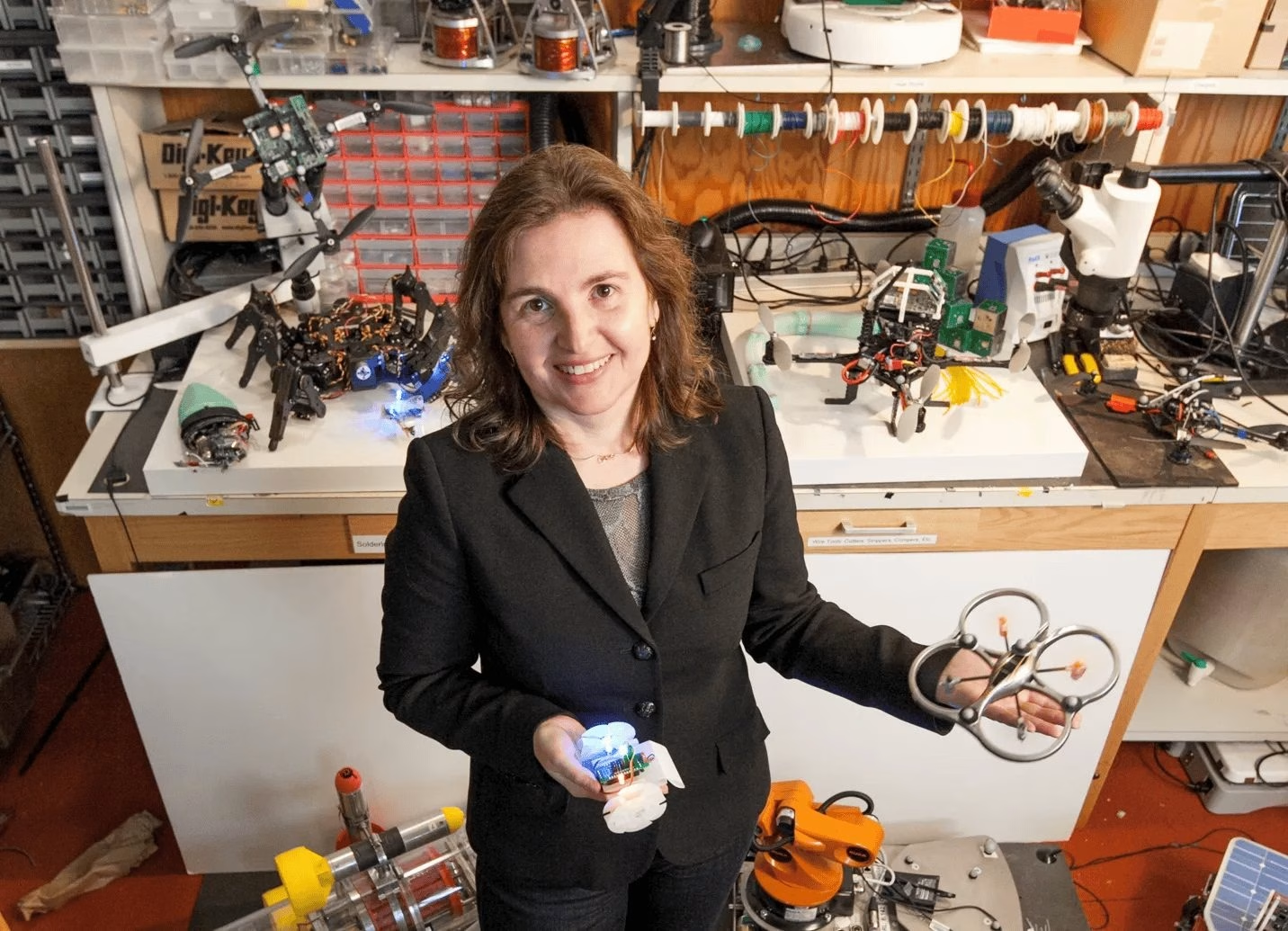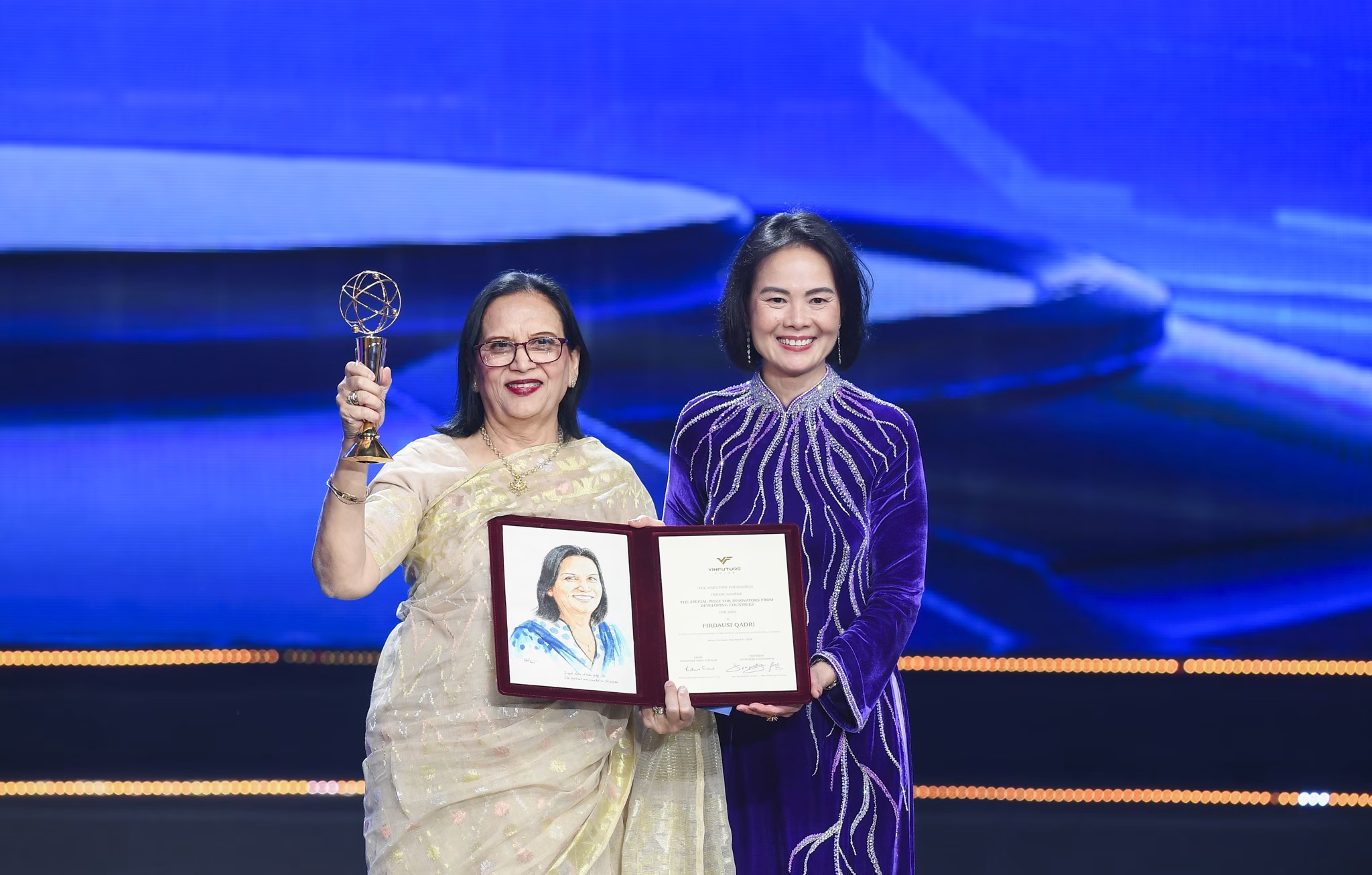A role model female scientist
– Your career has been associated with both developed and developing countries, namely Australia and South Africa, respectively. What finally brought you to Australia?
– Professor Schutte: Firstly, I would like to thank the VinFuture Foundation for the invitation to share my personal story on being a woman in science. I have been in contact with many women across multiple scientific disciplines, and I am always fascinated by the varying and unique stories that each person shares.
I was born in South Africa and grew up in a small gold mining town with my family, where I am the fourth of five children. Developing countries, such as those in Africa and Asia, pose many challenges to young people who are attracted to a career in science, especially for women, but they also offer many rich opportunities. I was fortunate to have access to Potchefstroom University for Christian Higher Education (today called the North-West University) where I completed all my degrees. Afterward (in 2004), I went to Darwin, Australia, for a postdoctoral fellowship and had a great experience engaging with Indigenous communities in that region.
But I returned to South Africa and started a career in academia where I built a team of researchers working on high blood pressure in populations from Africa. This population has an extremely high risk for hypertension, and ultimately many suffer from strokes. In 2008, I founded the Hypertension in Africa Research Team (HART). The research center expanded, and we launched a Hypertension Research and Training Clinic which provided a state-of-the-art facility to offer a wide range of cardiovascular assessments in population-based and clinical studies. We became a center of excellence and a South African Medical Research Council Extramural Unit for Hypertension and Cardiovascular Disease.
These developments all contributed to my scientific career and leadership as President of the Southern African Hypertension Society and, in 2018-2020, as the first President from Africa and the only second female president of the International Society of Hypertension’s 50-year existence. As my international networks expanded, so did my interest in improving global health, particularly in low-resource settings.
Therefore, when I was offered an opportunity to lead the Cardiac Vascular and Metabolic Medicine Research Theme at the University of New South Wales in Sydney, Australia, and become part of the Cardiovascular Team at the George Institute for Global Health, it was an offer that I couldn’t refuse. These institutions are global leaders in preventing and improving cardiovascular health, offering me the opportunity to make a much greater impact. In January 2020, I relocated with my family to Sydney, Australia.
– Why did you choose cardiology among so many other fields? When did you first know you wanted to pursue a career in science? Did you have a role model who inspired your decision to work in science?
– Professor Schutte: From early on in school I had a keen interest in biology – partially spurred on by an excellent teacher who inspired me. In addition, my grandfather died when my father was only 2 years old, and my father also suffered from heart disease. Being confronted with how his disease affected my family’s lives, including my own, I have no doubt that it combined with my keen interest in human biology and physiology which sparked the will in me to work in cardiovascular disease prevention. With high blood pressure being the leading cause of death (from mainly strokes and heart attacks), it was an important and clear area of work for me.
I grew up in a household where we all discussed science around the dinner table, with my siblings studying physics, computer science, engineering, microbiology and nutrition. It was extremely stimulating and I am fortunate to have been surrounded by them. Nevertheless, I was very confused on what I wanted to do with my life, even until the end of high school. I thus started with a basic BSc degree with physiology as a major and it all went from there.
Early in my life, I would think my family and school teacher were role models for me, but as I entered academia as a junior and later senior researcher, I had many role models – men and women – who mentored and inspired me to be the best version of myself.
– How do you assess the development of women in the medical field compared with other fields in science? What would you like to do to improve the status quo? How do you feel the landscape will change for women in science over the next five years?
– Professor Schutte: I think there is great diversity around the world on how women are accepted into science on an equal footing with men. Perhaps in medical science, the representation of women is somewhat better compared to, for instance, engineering or physics. But we often still see that women are represented well (often also the top performers) in early career stages, including Ph.D. and postdoctoral levels. However, as soon as the senior career stages, such as Associate and Full Professorial levels are examined, they are overwhelmingly dominated by men.
There are many reasons for that, including women’s own choices to, e.g., stay at home as a mother. But there are also very clear biases demonstrated by both men and women when reviewing grant applications and promotions, favoring men even though they have identical qualifications and performance (this was shown by experiments).
For some reason, the world is geared towards thinking that “men = scientists.” I am happy to help change that global perspective, which is why we need to engage globally with children and in all countries.
A good example was asking children to draw pictures of women as scientists or to present them with such. Personally, I would like to contribute to changing the status quo. I have been engaging with many global committees (e.g., the International Society of Hypertension’s Women in Hypertension Research Committee), mentorship schemes for young women (e.g., being a mentor for the Franklin Women Mentorship initiative in Australia), but also speaking at forums on women’s health, women in science and making my voice heard in forums such as these.
I think in the next five years, there may be some improvement – probably more improvement in some countries than others – but it is a slow process. We know that decades ago the situation was starkly different, and I am immensely grateful to the women who stood up before me to make my life and the lives of many girls with careers ahead of them so much easier. I am keen to do the same.
– As a mother, a wife, and a successful scientist, have you ever felt that your roles with family and society conflict with each other? If so, how do you handle this challenge? What advice do you have for women facing similar problems?
– Professor Schutte: I feel conflicted all the time – torn between work and home. I am sure that I am not unique in this sense, and perhaps it has gotten slightly better as my children grew up (they are now teenagers). But it never goes away. To some extent, the COVID-19 pandemic has helped, as it left a legacy that it is more acceptable and productive when academics work from home a bit more. This has helped me to be here for my children when they needed me, but also be highly productive in my work.
In short, I think one rather gets used to the conflict than be able to manage a work-life balance super effectively. There are times when I balance it a bit better, but other times when I fail magnificently! It is good to speak with my family members about it, and fortunately, they are very supportive.
My advice to other women is that firstly, it is possible to have a career in science and be a mother. Be strict with how you manage your time (for instance, I never work on a Saturday or Sunday to make time for them), communicate this clearly with your family, and believe that where there is a will there is a way. I have often seen young women with small children being far more productive in research than those without, as they are more efficient in managing their time and are highly driven to be successful.
Science in developing countries – Global collaboration opportunities
– Are there any notable gaps between the scientific community of Australia and that of South Africa (such as working environment, research resources, job prospects, and women’s participation), and how could we lessen these gaps? Do you think these gaps will become narrower over time?
– Professor Schutte: Having worked as a professor both in South Africa and in Australia, my experience is that there are substantial differences. In South Africa, the proportion of women in academia is greater than in Australia as there are strong initiatives to drive equity and diversity. However, the science community is so much smaller in South Africa due to limited funding and resources.
Despite this limitation, the scientists are of the highest caliber as demonstrated by the COVID-19 pandemic and how, for example, the Omicron variant was discovered by South African scientists with expertise in viral infection due to leadership in HIV work. The gap between developed and developing countries will only become narrower when there is a clear mission by the government of a developing country to spend a set proportion of its GDP on science. Some countries have taken that route and it clearly bears fruit.
– How could we address the lack of presence in the science of people from developing nations? How could we encourage more people to pursue their dreams in scientific research?
– Professor Schutte: This question has many answers as it is a complex problem. There are multiple factors required to enable more people to pursue a career in scientific research. As mentioned before, there needs to be governmental support for science, and leaders with the vision and understanding that allocated funding and commitment are required to establish universities and research centers where scientists could be trained. It has been shown many times that such investment has a huge advantage for the economy of the country over the longer term.
There is also often a strong drive in developed nations to support institutions from developing countries regarding scholarships, exchange programs, and collaborative research opportunities, but there needs to be a ‘home base’ with a set structure and highly motivated leaders and some local momentum.
The idea is often to send promising young scientists to quality institutions to do a doctoral degree or fellowship, and the problem is that those individuals often do not want to return home to establish their laboratory or research center because there is no funding, co-workers, or a conducive environment. I think a careful balance is thus required where the home institution needs to be well-established and attractive for international collaboration, which would be ideal to encourage networking and exchange programs beneficial to all parties.
– What barriers do scientists in developing countries face when connecting with their colleagues in the global community? If you could change one challenge affecting your colleagues in the developing world, what would you choose?
– Professor Schutte: If I had to address one challenge, it would be access to seed funding to do research. Basic (as in small amounts of) research funding is essential to initiate ideas, pilot studies, generate local data, and support those researchers to travel to international meetings or laboratories, to not only present their findings and to network, but to open their eyes to opportunities and diverse approaches that we often encounter at global meetings.
– When it comes to scientific achievements, sometimes what is considered a milestone in developed countries could be fairly costly and difficult to be applied in developing ones. Do you find a similar situation with your research, especially for your research work in cardiovascular disease?
– Professor Schutte: To make scientific breakthroughs, there is usually a requirement of scientific excellence, facilities, and laboratories to do the work, and people who are well-trained and equipped to generate novel ideas. For most of these requirements, funding is required, which is why it is immensely challenging for scientists in developing countries. To do cardiovascular research in Africa was wonderful due to access to interesting and diverse populations in rural and urban environments, but to be on the cutting edge, we required major funding from the United Kingdom to subsidize local funding.
The excellent and groundbreaking work on HIV that was forthcoming from South Africa was due to major long-term investment from US funding bodies, which enabled local bright minds to innovate solutions within the local context. As soon as such funding is stopped, so will the innovation. It is truly a wicked problem as I have struggled with the problem that a developing nation is dependent on funding from developed nations, where local governments should also prioritize scientific developments. Fortunately, this is the case in many developing countries.
